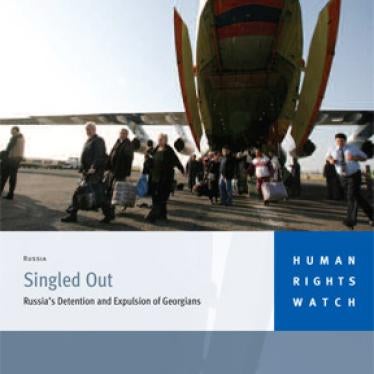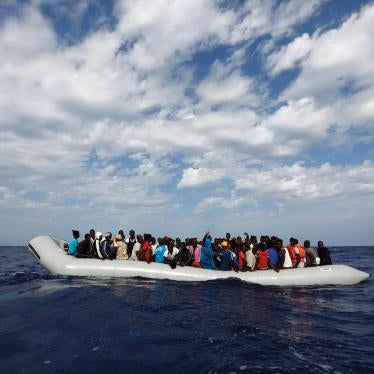After almost 19 years since the first exchange of fire in August 1992, the Georgian-Abkhaz conflict remains as far from political resolution as ever. Although internationally recognised as a part of Georgia, in the years since the end of the conflict in 1994 Abkhazia's de facto authorities have developed their own state institutions - a process that has accelerated since the Georgia-Russia war in August 2008. The manner in which these authorities conduct themselves weighs heavily on the ability of the many displaced persons to return to their homes.
More than 200,000 people were displaced by the 1992-1993 hostilities. The overwhelming majority were ethnic Georgians who have not been able to return to their homes. The only area where returns have taken place has been Gali, the southern-most district of Abkhazia. According to the United Nations High Commissioner for Refugees (UNHCR), 96% of Gali's 79,688 inhabitants were ethnic Georgians before the 1992-93 conflict.
For a short period in 1994, the UNHCR organised returns to Abkhazia; several hundred persons were able to go back. However, the spontaneous return of Gali residents continued well after that, and in early 1999 the Abkhaz side launched a unilateral initiative to implement returns to Gali. Many families soon went back, initially commuting daily across the ceasefire line and migrating seasonally to tend their fields and look after what remained of their houses.
According to Gali's de facto authorities, as many as 47,000 people have returned permanently to Gali and an additional 5,000 commute back and forth across the administrative boundary line (ABL). Georgian authorities in Tbilisi do not contradict these figures. However, they dispute the notion that these individuals are returnees. They treat them as internally displaced persons (IDPs) because their return has not been organised in conditions that ensure their dignity and safety.
Most of the thousands of ethnic Georgians who have gone back to Gali - whether temporarily or permanently - maintain close ties with Georgian-controlled territories and are largely dependent on their ability to commute across the ceasefire line. Many families remain divided across the ABL, particularly those with school-age children who fear the imposition of Russian-language education. They prefer to have their children taught in schools in Zugdidi, just across the ABL. High-school graduates also often leave Gali to do their higher education in Georgian-controlled territories. Young men of conscription age also often stay away from the province to avoid being drafted into Abkhaz forces.
Ethnic Georgian returnees face a number of problems that loom large in their decision whether to return to the area (in some cases, to stay) or leave it for good. Personal security and protection from crime is a daily anxiety. Guaranteeing returnees' security and upholding law and order in Gali has proved difficult. This is largely due to the weakness in the rule of law and administration of justice in the area and deep, mutual distrust between the Georgian population and Abkhaz security authorities.
Another source of anxiety for returnees is the need to obtain Abkhaz ID documents. Although Abkhaz passports are not internationally recognised, returnees require them before the authorities will extend certain civil and political rights, including property rights. The citizenship measures implemented by the de factoauthorities discriminate on ethnic grounds, automatically granting ethnic Abkhaz the right to a passport but creating barriers for non-ethnic Abkhaz to obtain them. They also require ethnic Georgians to formally renounce their Georgian citizenship.
As mentioned above, the ability to commute across the ABL is vital for ethnic Georgian returnees. Prior to the August 2008 war, there were four official crossing points and about a dozen unofficial ones, particularly when water was low in the Inguri river, which serves as a natural border between the conflicting parties. Currently, with only one official crossing point and a requirement to obtain a special crossing permit from the Abkhaz authorities in the town of Gali, many returnees are in a difficult situation, particularly those who live in rural areas far from the town. The situation is aggravated by incremental fines imposed by the de facto authorities for so-called illegal border crossing.
The language policy of education in the Gali district is a major concern for residents. Although Article 6 of the Abkhaz constitution guarantees every ethnic group in Abkhazia the right freely to use their mother tongue, in practice access to Georgian-language education for ethnic Georgians is restricted. In the upper district of Gali, Georgian as a main language of instruction has been replaced by Russian; schools in the lower district worry they may share the same fate.
Although Abkhazia is an unrecognised entity, and as such is not party to core international human rights treaties, human rights guarantees applicable in Georgia also apply to Abkhazia. The de facto authorities therefore have the obligation to respect and protect those guarantees. This includes the requirement to address the problems that ethnic Georgian returnees face. Abkhazia's constitution explicitly recognises this obligation and guarantees the rights and freedoms provided in the Universal Declaration of Human Rights and international human rights treaties. So, regardless of Abkhazia's status, its authorities have an obligation to ensure freedom of movement with respect to the ABL, non-discrimination - in particular, with regard to identity documents - and the right to education in one's mother tongue.
The international community should increase its efforts to convince the de facto authorities and all parties involved in negotiations of the need for an on-the-ground, international presence in Abkhazia. The UN and OSCE both had a presence in Abkhazia that they were forced to withdraw shortly after the August 2008 war between Russia and Georgia. International representatives in Abkhazia are essential in Abkhazia if human rights are to be monitored effectively and the rights of returnees are to be protected.







